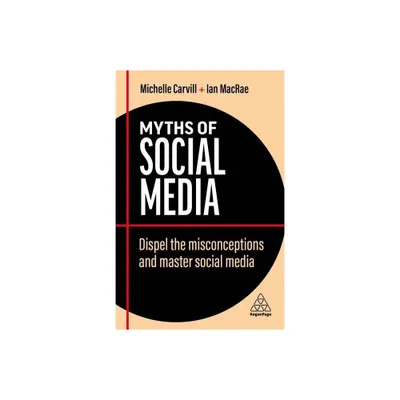Home
Chinese Social Media: Face, Sociality, and Civility
Loading Inventory...
Barnes and Noble
Chinese Social Media: Face, Sociality, and Civility
Current price: $99.99


Barnes and Noble
Chinese Social Media: Face, Sociality, and Civility
Current price: $99.99
Loading Inventory...
Size: OS
*Product Information may vary - to confirm product availability, pricing, and additional information please contact Barnes and Noble
What role does social media play in the lives of Chinese youths as they adapt to the rapid economic and social changes in modern China? This book examines the social media experiences and practices of young middle class Chinese who moved to Beijing to study and with the hope of work and participation in the possibilities of social and professional life. Through an analysis of their use of WeChat we explore their enthusiasm for self-expression online, their mediated social relations (guanxi) with family, friends, classmates and colleagues and their engagement with questions of online civility.
The authors argue that sustaining personal and social relationships in the context of China’s modernity, including its soft regulation of internet and social media, demands new norms of positivity and online civility. This is framed by several tensions: between emerging opportunities for freedom of expression and long-standing traditions of social identity and reputation such as face (lian and mianzi); between traditional obligations to parents (xiaoshun) and the desire for personal autonomy; and the pressure to constitute and govern the internet as a space of positive energy and civility in support of national Chinese sovereignty.
The social media practices and deliberations of the participants reveal a fascinating amalgam of traditional Chinese culture and philosophy and reflections on tradition and collectivism combined with an embrace of Western-influenced ideas of positive psychology, self-expression, social networks and pragmatic social relations.
The authors argue that sustaining personal and social relationships in the context of China’s modernity, including its soft regulation of internet and social media, demands new norms of positivity and online civility. This is framed by several tensions: between emerging opportunities for freedom of expression and long-standing traditions of social identity and reputation such as face (lian and mianzi); between traditional obligations to parents (xiaoshun) and the desire for personal autonomy; and the pressure to constitute and govern the internet as a space of positive energy and civility in support of national Chinese sovereignty.
The social media practices and deliberations of the participants reveal a fascinating amalgam of traditional Chinese culture and philosophy and reflections on tradition and collectivism combined with an embrace of Western-influenced ideas of positive psychology, self-expression, social networks and pragmatic social relations.


















